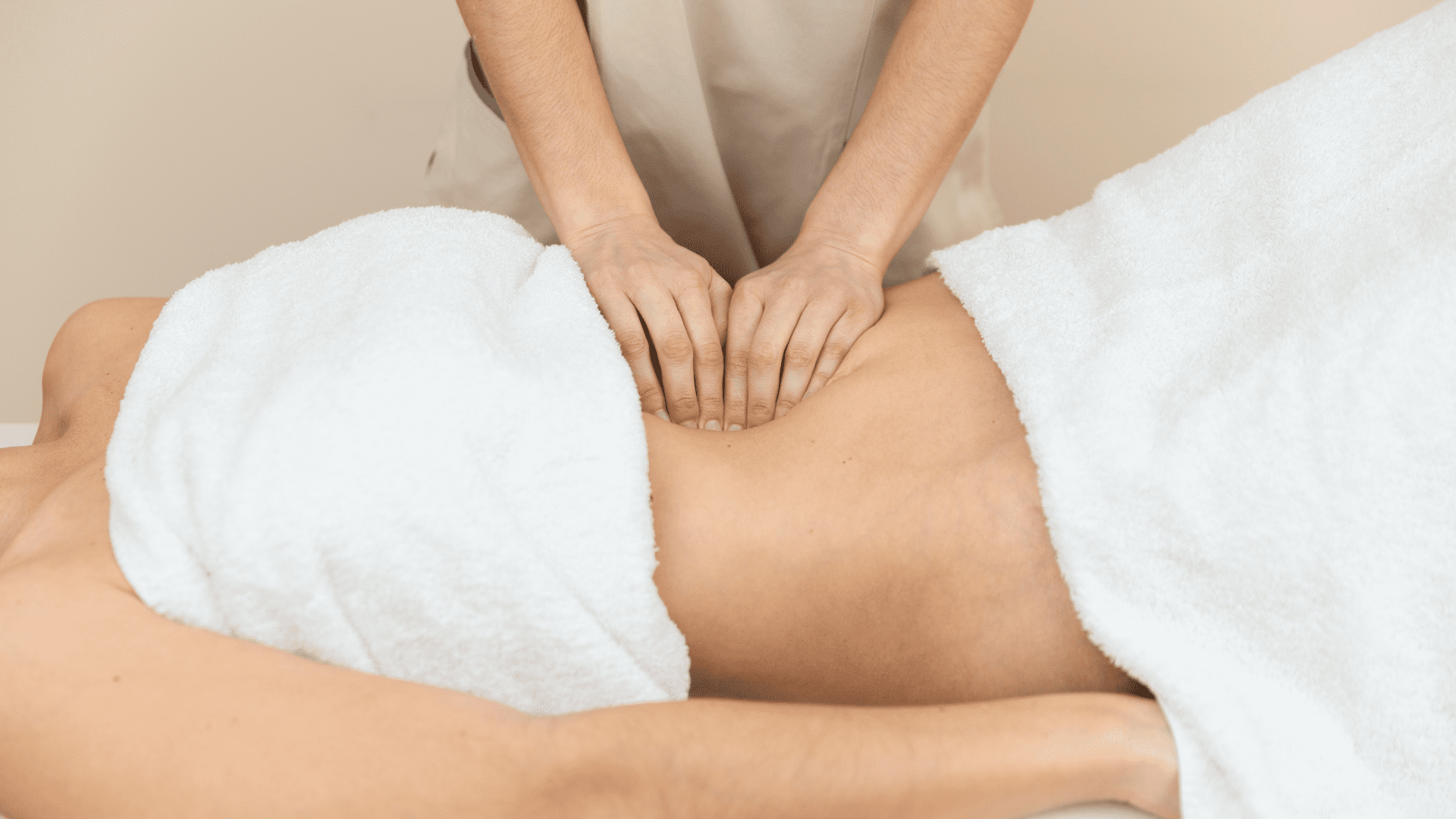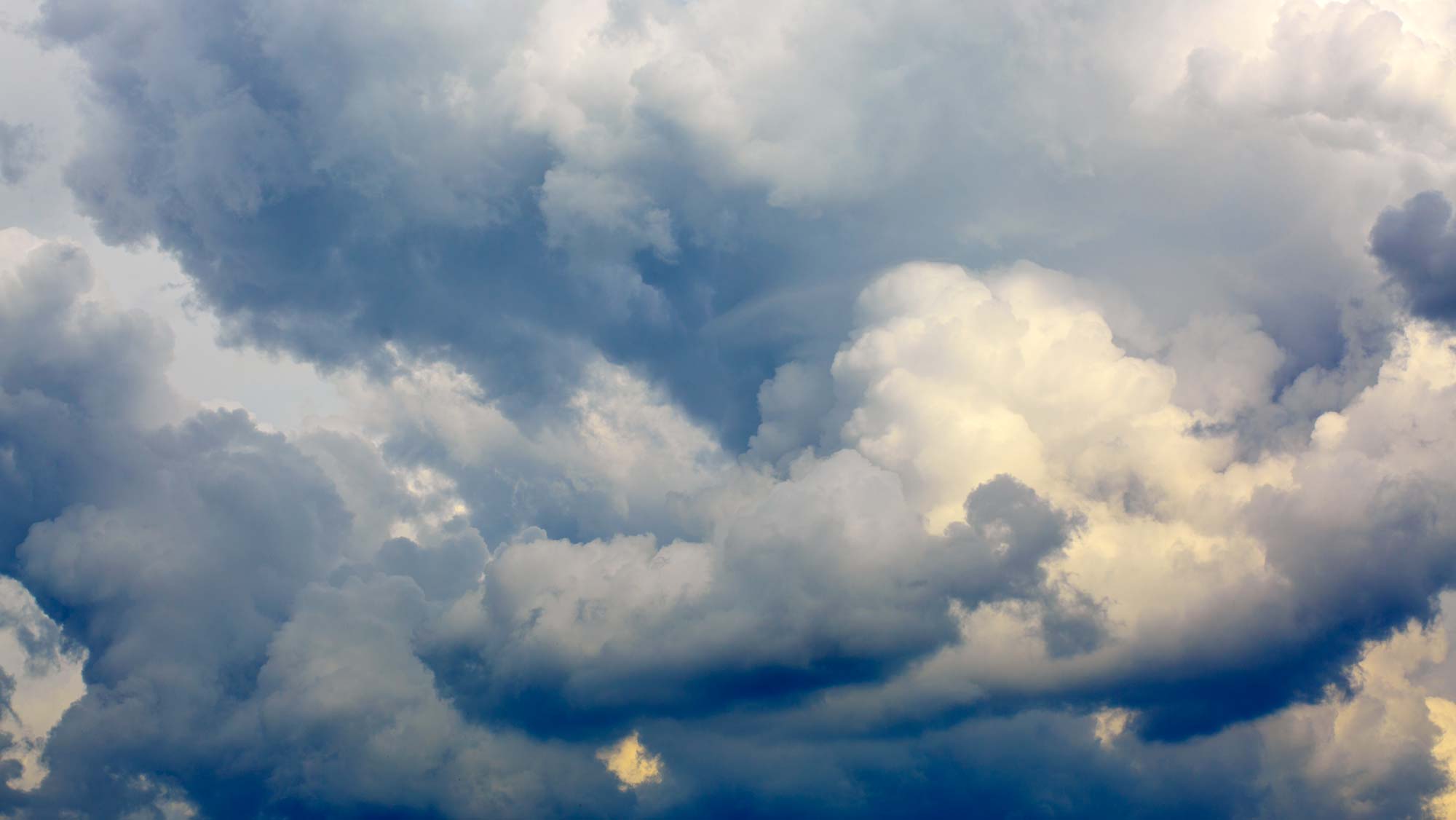Modern city life has a lot to offer, sometimes even too much. Many people find themselves frazzled and exhausted at the end of a long work day, wanting nothing but a good night’s sleep, only to find themselves lying in bed for hours watching their minds race like a runaway train. This is because we are bombarded with stimuli throughout the day and in a constant reactionary state.
Your body’s response to continual stressors
In such a constant reactionary state, our adrenal glands secrete hormones, among them adrenaline and cortisol, that signal a cascade of effects which enable our bodies to deal with situations quickly and efficiently. Among these effects are:
- increased heart rate,
- elevated blood pressure,
- elevated blood sugar.
This stress response is a natural coping mechanism that our bodies use to heighten our awareness and responsiveness.
When the stressful stimuli are gone, our bodies should return to homeostasis, with levels of these “fight or flight” hormones dropping to normal ranges. What happens if the stressful stimuli never goes away? Elevated levels of adrenal hormones are linked to:
- blood sugar imbalance,
- weight gain and obesity,
- immune system suppression,
- chronic fatigue,
- gastrointestinal problems,
- systemic inflammation,
- fertility issues,
- depression,
- insomnia.
Herbal helpers from mother nature—nervines and adaptogens
Two unique classes of herbs, nervines and adaptogens, offer effective remedies to heal the nervous system and balance the body’s stress response:
- Nervines are classified as plants that have a beneficial effect on the nervous system and fall into three categories: tonics, relaxants, and stimulants.
- Adaptogens are considered herbs that help the body adapt to stressful stimuli while maintaining homeostasis. For an herb to be classified as an adaptogen it must be completely safe and non-toxic.
For the purposes of this article, we will focus on nervine relaxants and adaptogens. These plants help the body and mind:
- relax,
- de-stress,
- get restful sleep
… while also working to heal the damage created by long-term stress.
Nervine Relaxants
These are herbs that have a sedative effect on the nervous system and an overall calming effect on the body and mind. Some nervine relaxants even have muscle relaxant properties and antispasmodic effects. Here are some nervine relaxants you may have heard of:
Lavender Lavendula officinalis
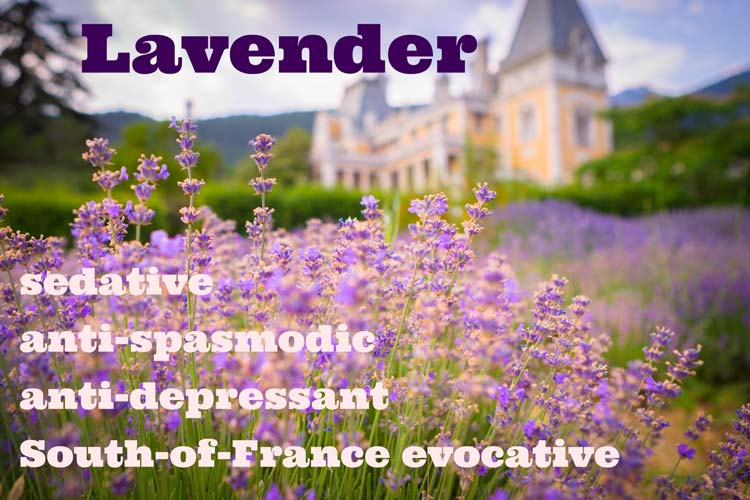
An easy to find nervous system relaxant, lavender is well-known for its sedative, anti-spasmodic, anti-depressant, and anti-septic properties. Not only is it commonly used in tea form, the essential oil is becoming a popular remedy for stress-induced headaches.
Lemon Balm Melissa officinalis
Lemon balm is most well-known for its anti-depressant and anti-anxiety properties. It not only falls into the category of nervine relaxant, but it is also considered a nervine tonic or adaptogen for it’s ability to modulate the whole body’s response to stress.
Valerian Valeriana officinalis
Valerian is a popular, powerful sedative and antispasmodic. It relaxes the autonomic nervous system and the smooth muscles of the body. It is most readily found in teas and tinctures and has been used for centuries as an effective sleep aid. It has even been found useful for relief of minor abdominal cramping and the painful cramps associated with menstruation.
Passion Flower Passiflora
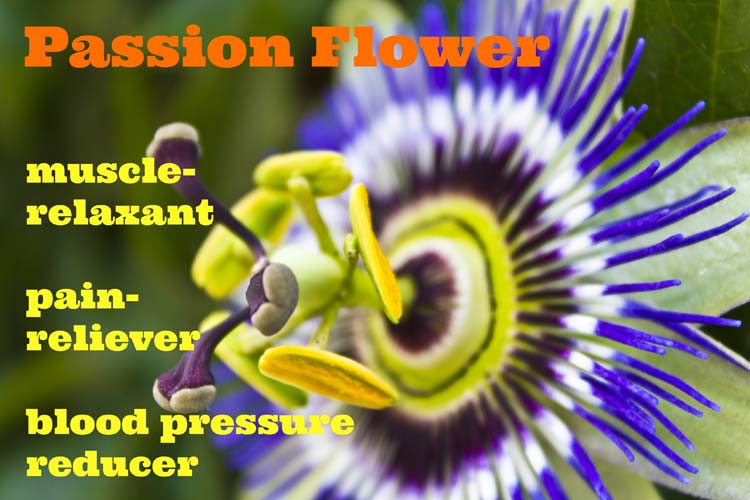
A plant of intoxicating beauty, passion flower offers a wide range of beneficial properties. Among them, are its antispasmodic, muscle-relaxant, and pain relieving effects. It can lower blood pressure and has a powerful sedative quality, making it ideal for gently winding the body and mind down.
Linden Flower Tilia europea
Most often taken in tea or tincture form, linden flower has a gentle sedative effect. It is considered a safe herb that can be used for children or adults.
Hops Humulus lupulus
Among its usage as an anti-spasmodic, pain killer, and digestive aid, hops also falls into the categories of potent sedatives and hypnotics. It’s ideal for chronic worriers and anxiety-ridden minds. It is most commonly taken in tea, tincture, and capsule form. Another creative and effective way to utilize its beneficial properties for relaxation is to make a small hops pillow out of the dried flowers and keep it in the bed.
Skullcap Scutellaria laterifoli
Skullcap has the unique distinction of being a sedative, nervine relaxant, and nervine tonic. These diverse properties make it very useful for those dealing with long-term nervous exhaustion. It can calm the central nervous system while repairing the damage of excessive stress hormones over time. Its anti-spasmodic properties make it useful for easing PMS symptoms, muscle twitching, nerve-related pain, and a wide range of nervous disorders.
Adaptogens
Plants containing myriad properties that help the body adapt to stress, whether it be psychological, emotional, or physical. These herbs help us to maintain physiological homeostasis and avoid “burn-out.” Some adaptogens affect the whole body, while others benefit specific organs or areas. To obtain the full benefit that these herbs have to offer, they must be taken regularly and at therapeutic doses.
Schizandra Schisandra chinesis
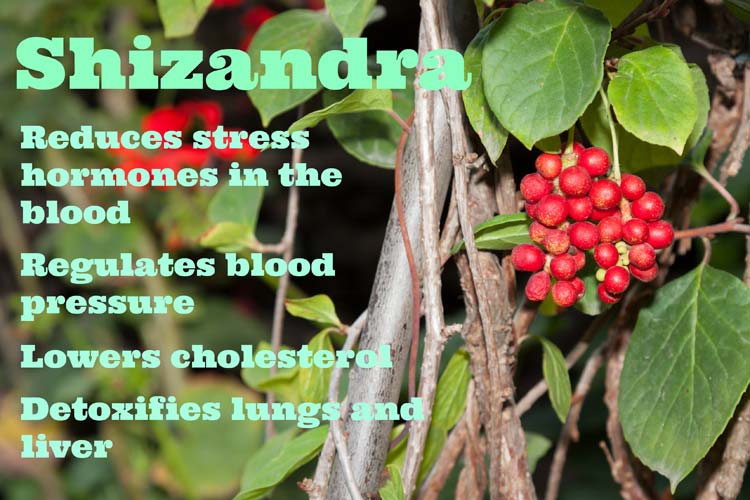
Schizandra berries have been used for thousands of years in Traditional Chinese Medicine to treat a wide range of ailments. They reduce levels of stress hormones in the blood, regulate blood pressure, lower cholesterol, and even strengthen and detoxify the lungs and liver. When taken long-term, schizandra can help to repair a frazzled nervous system and enhance the body’s overall performance.
Golden Root Rhodiola rosea

Golden Root – enhances mental function, has a calming effect, and is an antioxidant
An extensively studied adaptogen, rhodiola is prized for it’s ability to enhance mental function and clarity while helping the body to deal with stress and generating an overall calming effect. It has powerful antioxidant properties and has been found to enhance physical performance and endurance.
Ashwagandha Withania somnifera
One of the most powerful and popular herbs in Ayurvedic medicine, Ashwagandha is prized for its brain enhancing, immune boosting, and stamina building properties. In Sanskrit, the word Ashwagandha translates as “smell of the horse,” emphasizing its ability to imbue the strength, endurance, and potency associated with a stallion. It is typically taken in capsule, powder, or tea form and is used for a wide array of conditions from difficulty concentrating to sexual dysfunction.
Holy Basil/Tulsi Ocimum tenuiflorum
A member of the mint family, Tulsi is renowned for its ability to lower levels of stress hormones in the body. Traditionally it has been used in Ayurvedic medicine for its antibacterial, fever-reducing, and respiratory health qualities. It is most easily found in tea form where the leaves of the plant have been dried and chopped. You can also munch on the fresh leaves or use it in cooking, as it is a great addition to any home herb garden.
Herbs for stress & relaxation at the clinic
Most of the herbs in this article are considered to be “Western” herbs, and we carry both Western and traditional Chinese herbs at the clinic. As far as Western herbs go, our bestsellers are the tinctures by Urban Moonshine. The staff loves them too—several of us take Joy Tonic breaks and Jeremy dutifully takes bitters before every meal.
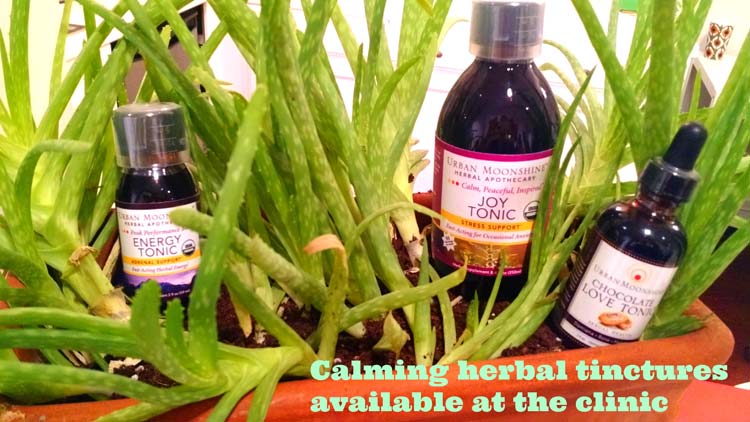
Many of our Urban Moonshine tinctures include herbs mentioned in this article:
- Joy Tonic: lemon balm and linden flower
- Energy Tonic: rhodiola, schisandra,
- Chocolate Love Tonic: schisandra
- Immune Tonic > schisandra
Customized herbal formulas for stress, mood and relaxation
Our herbal pharmacy boasts over 120 traditional Chinese herbs, many of which are well known for their adaptogenic and nervine relaxant properties. Following an herbal consult, our herbalists mix a formula that is customized to your particular set of conditions. Custom formulas allow us to use herbs that will help on two fronts:
- alleviate the unwanted symptoms you are currently experiencing,
- use herbs like adaptogens to help your body heal on a deeper level and get to the root of the issue.
More calming herbs coming soon
We have big plans for expanding our selection of products at the clinic, and we’re eyeing organic adaptogenic and nervine relaxant teas from Traditional Medicinals in the clinic soon. More specifically, we’re researching:
- Cup of Calm (contains passion flower, lavender)
- Nighty Night w/ Valerian: contains valerian, passion flower, lemon balm
- Stress Ease: contains skullcap
- Linden Flower, Hawthorn, & Lemon Balm
- Chamomile & Lavender
… stay tuned!
If you have a question about either Western or traditional Chinese herbs for stress, anxiety and mood, leave a comment below or contact us.





